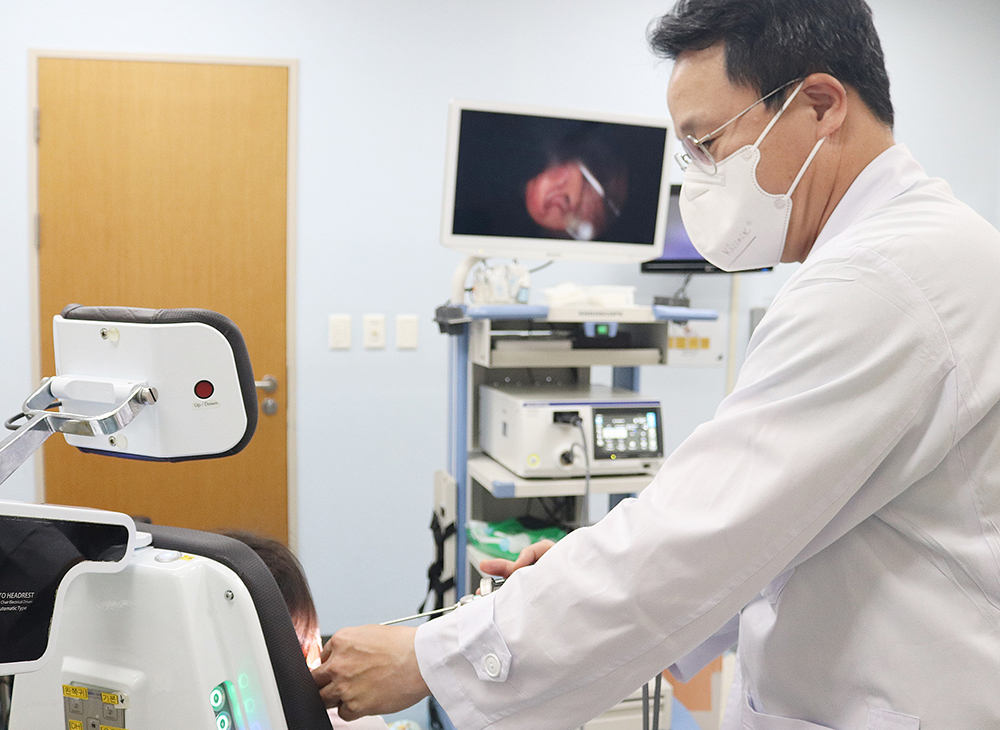-
- Global AMC MENU
- NEWS
- HEALTH
- PEOPLE
- Introduction

▲Professor Hong Ju Park and Professor Woo Seok Kang of the Department of Otolaryngology-Head and Neck Surgery
Children who had been unable to hear since birth but received cochlear implants showed no significant difference in educational and occupational status when they reached adulthood compared to the general population.
A research team led by Professor Hong Ju Park and Professor Woo Seok Kang of the Department of Otolaryngology-Head and Neck Surgery examined the schooling and employment rates of 71 children with bilateral hearing impairment who underwent cochlear implants between 2000 and 2007. Their average age at the time of surgery was 3.9 years, and their current average age is 22.4 years.
The analysis revealed that all subjects had either graduated from high school or obtained equivalent educational qualifications. The college admission rate was 74.6%, comparable to the general population's (70.4%, the university admission rate for Korean high school graduates in 2020).

▲Professor Hong Ju Park is treating a pediatric patient with hearing loss
Excluding 30 subjects currently enrolled in college, 26 (62%) of the remaining 41 are employed and engaged in various occupational activities. This employment rate is similar to that of general graduate students, which is 65.1% (based on the Korea National Statistical Office in December 2020). Of the employed 26 subjects, 21 were confirmed to have been hired through vocational training institutions or special hiring policies for people with disabilities.
The research findings were published in the recent issue of Otolaryngology-Head & Neck Surgery, the official journal of the American Academy of Otolaryngology-Head and Neck Surgery (AAO-HNS).












